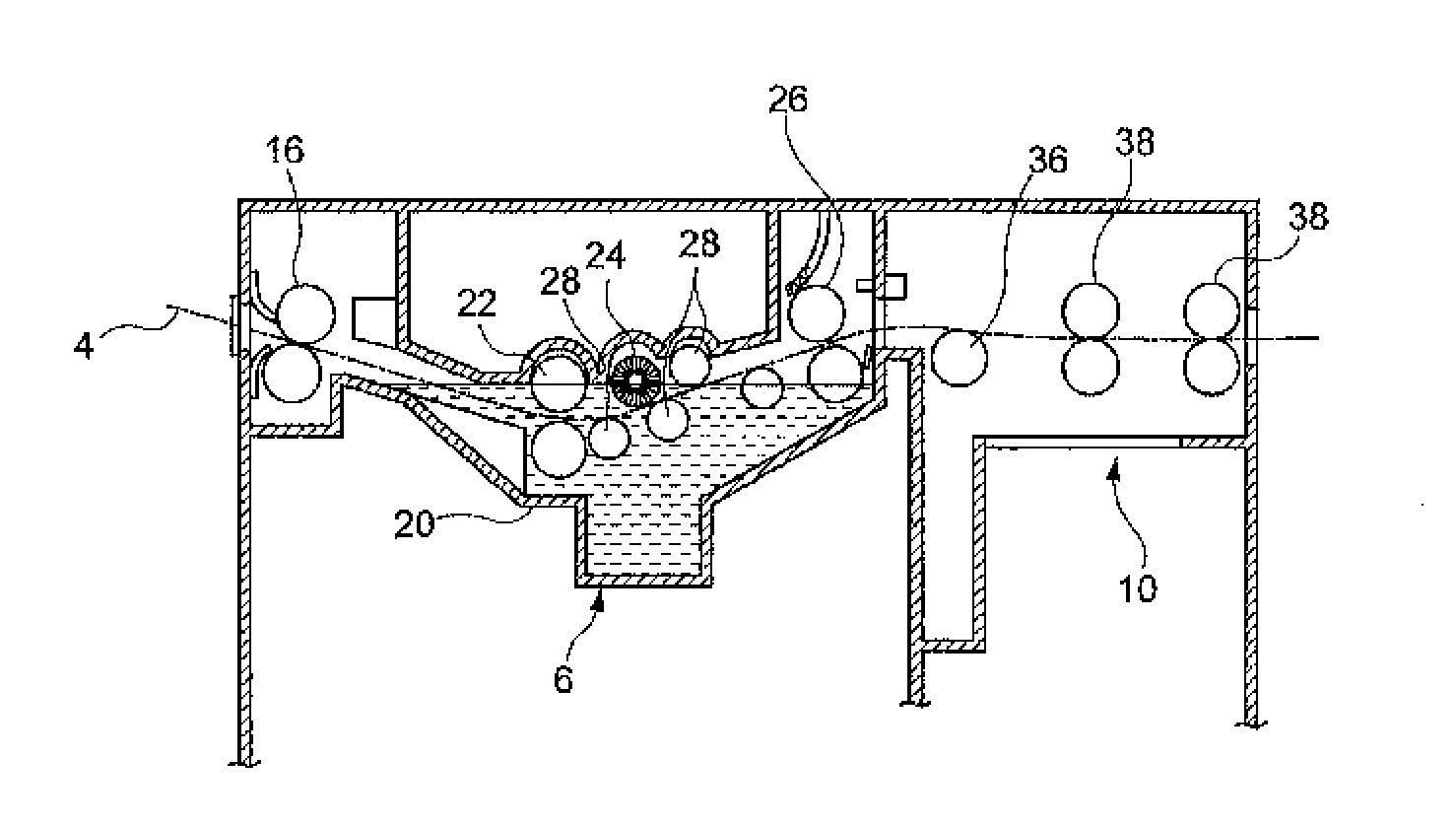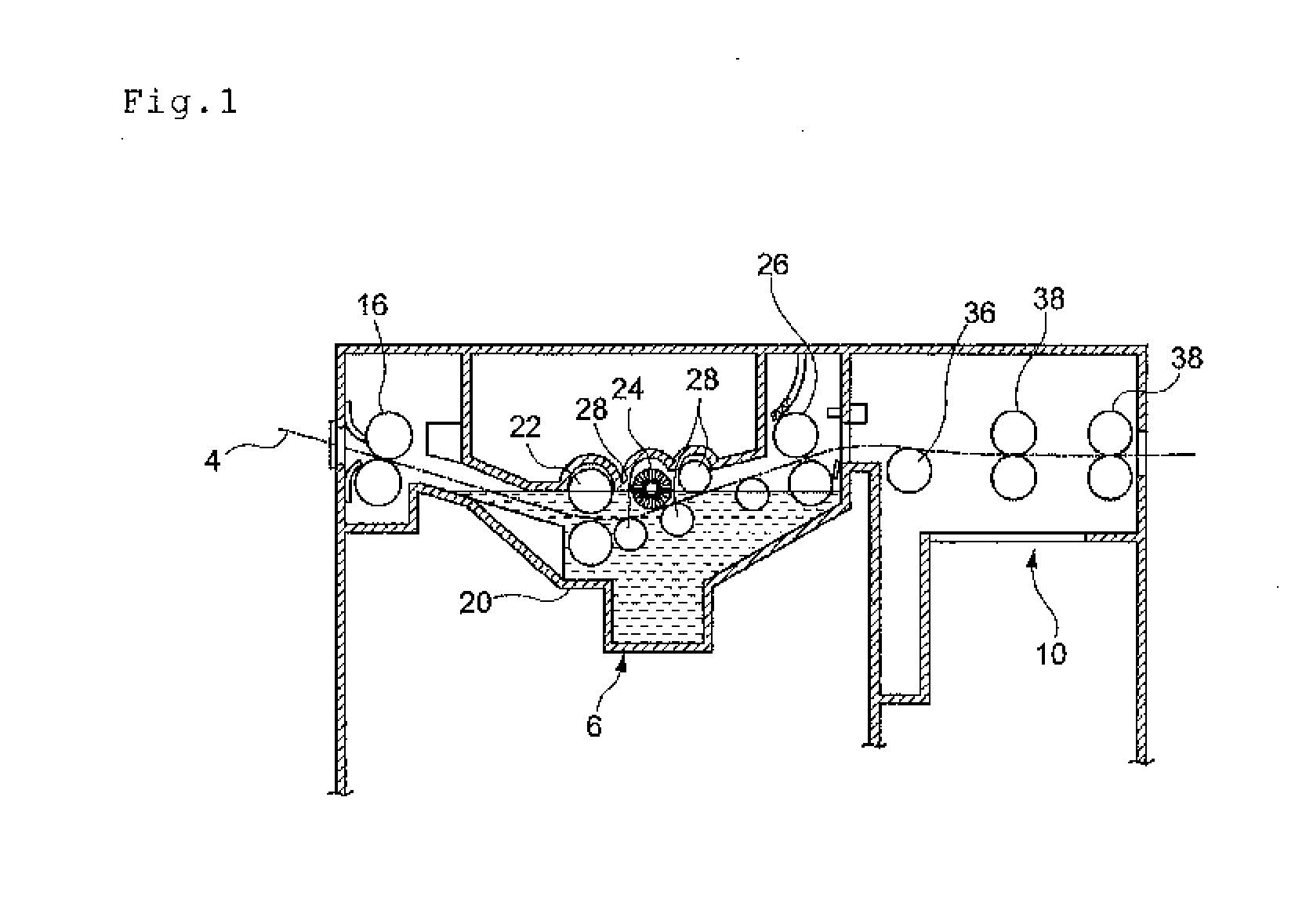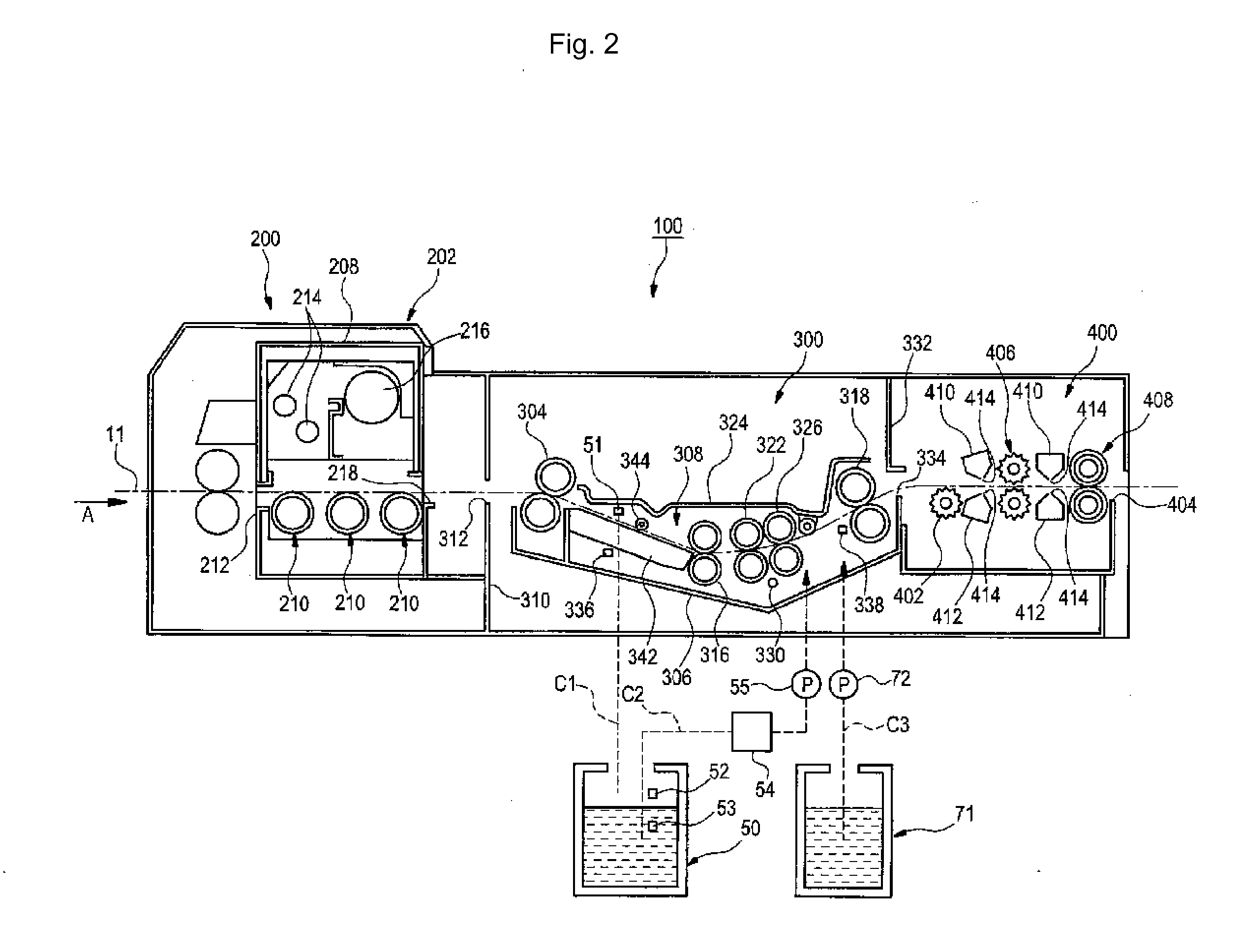Lithographic printing plate precursors and processes for preparing lithographic printing plates
a technology of lithographic printing plate and precursor, which is applied in the direction of photosensitive materials, instruments, photomechanical equipment, etc., can solve the problems of insufficient staining resistance, decreased staining resistance, and unsatisfactory results, and achieve excellent staining resistance and staining resistance over time, excellent printing durability, and excellent development
- Summary
- Abstract
- Description
- Claims
- Application Information
AI Technical Summary
Benefits of technology
Problems solved by technology
Method used
Image
Examples
first embodiment
[0344]Lithographic printing plates can be prepared by image-exposing a lithographic printing plate precursor according to the first embodiment of the present invention and developing it.
An example of a process for preparing a lithographic printing plate according to a first embodiment of the present invention comprises: image-exposing a lithographic printing plate precursor of the present invention; and developing the exposed lithographic printing plate precursor in a developer having a pH of 2 to 14; wherein the developing comprises removing unexposed areas of the photosensitive layer and the protective layer simultaneously in the presence of the developer.
[0345]Preferably, the process for preparing a lithographic printing plate of the present invention comprises forming a protective layer on the surface of the photosensitive layer opposite to the substrate; wherein the developing comprises removing the photosensitive layer in unexposed areas and the protective layer simultaneously...
second embodiment
[0392]Alternatively, lithographic printing plates can be prepared by image-exposing a lithographic printing plate precursor according to the second embodiment of the present invention and developing it.
Preferred aspects of each of the process for preparing a lithographic printing plate according to the second embodiment of the present invention are explained in order below. Additionally, lithographic printing plates can also be prepared from the lithographic printing plate precursor of the present invention when the developing includes a water-washing though such a variation departs from the original purpose of the process for preparing a lithographic printing plate of the present invention.
[0393]
The process for preparing a lithographic printing plate of the present invention comprises image-exposing a lithographic printing plate precursor of the present invention. Details of the exposure can be found in the description of the first embodiment hereinabove.
[0394]
The process for prepa...
example a
Synthesis Example of Copolymers 1
[0408]A 500-ml three-neck flask was charged with 1.98 g of dimethyl-N-methacryloyloxyethyl-N-carboxymethyl-ammonium betaine (from Osaka Organic Chemical Industry Ltd.), 9.68 g of 2-(phosphonooxy)ethyl methacrylate (from Kyoeisha Chemical Co., Ltd.), 8.34 g of 2-methacrylamide ethylamine (synthetic product), and 40 g of distilled water, and the mixture was heated with stirring for 10 minutes at 60° C. under a stream of nitrogen gas. Then, 0.9 g of the polymerization initiator VA-046B (from Wako Pure Chemical Industries, Ltd.) was dissolved in 40 g of distilled water, and added dropwise over 3 hours. Then, 0.9 g of VA-046B was added again, and the mixture was heated at 80° C. for 3 hours, and then cooled.
The resulting polymer solution was adjusted to pH 9.7 by adding NaOH. Then, 0.2 g of 4-OH TEMPO (from Tokyo Chemical Industry Co., Ltd.) was added, and the mixture was heated to 55° C., and 30.22 g of methacrylic anhydride (from Aldrich) was added drop...
PUM
| Property | Measurement | Unit |
|---|---|---|
| pH | aaaaa | aaaaa |
| wavelength range | aaaaa | aaaaa |
| image recording wavelength | aaaaa | aaaaa |
Abstract
Description
Claims
Application Information
 Login to View More
Login to View More - R&D
- Intellectual Property
- Life Sciences
- Materials
- Tech Scout
- Unparalleled Data Quality
- Higher Quality Content
- 60% Fewer Hallucinations
Browse by: Latest US Patents, China's latest patents, Technical Efficacy Thesaurus, Application Domain, Technology Topic, Popular Technical Reports.
© 2025 PatSnap. All rights reserved.Legal|Privacy policy|Modern Slavery Act Transparency Statement|Sitemap|About US| Contact US: help@patsnap.com



